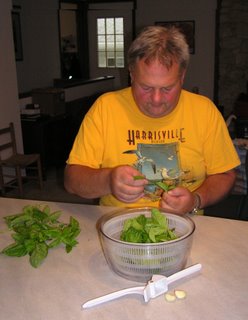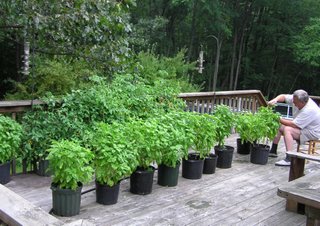
from wikipedia
In ancient mythology, Ambrosia (Greek αμβροσία) is sometimes the food, sometimes the drink, of the gods. The word has generally been derived from Greek a- ("not") and mbrotos ("mortal"); hence the food or drink of the immortals . . . . The classical scholar Arthur Woollgar Verrall, however, denied that there is any clear example in which the word ambrosios necessarily means immortal, and preferred to explain it as "fragrant," a sense which is always suitable. If so, the word may be derived from the Semitic MBR ("amber", which when burned is resinously fragrant; compare "ambergris") to which Eastern nations attribute miraculous properties. In Europe, honey-colored amber, sometimes far from its natural source, was already a grave gift in Neolithic times and was still worn in the 7th century CE as a talisman by druidic Frisians, though St. Eligius warned "No woman should presume to hang amber from her neck." [I think I'm going to make a practice of wearing amber from now on -- Anne.] W. H. Roscher thinks that both nectar and ambrosia were kinds of honey, in which case their power of conferring immortality would be due to the supposed healing and cleansing power of honey, which is in fact aseptic, and because fermented honey (mead) preceded wine as an entheogen in the Aegean world: the Great Goddess of Crete on some Minoan seals had a bee face: compare Merope and Melissa. See also Ichor. . . .
Derivatively, the word Ambrosia (neuter plural) was given to certain festivals in honour of Dionysus, probably because of the predominance of feasting in connection with them.
In summer, we feast on pesto. Basil is our fragrant food, so potent that I suppose it must have aseptic properties (and the garlic certainly does). Although we don't yet have a vegetable plot in our yard, we planted lots and lots of basil in pots on the deck. There is more than enough to make pesto on Saturdays and Sundays simply by pruning the plants. Pesto has the taste of summer to me. What could be more summery than masses of green leaves? And what better binder than Greek olive oil? Food of the gods, I dub thee pesto.

What puts me in mind of things Greek is the most marvelous book, The Lightning Thief by Rick Riordan. This is his first book for young adults. Part American Gods and part Harry Potter, The Lightning Thief follows the uneasy growth of a teen troubled with ADHD, dyslexia, and social problems, which stem from his mixed parentage: part human, part god. My 10-year-old daughter and 13-year-old son both devoured it as voraciously as I did, and it is somewhat rare for our tastes to agree to such an extent. This book is (groan with me here) pure ambrosia.
3 comments:
Fabulous plants. It must smell divine. And be pest-free. The Greeks also keep it by the doors to repel insects.
Also fresh lime, lemon blossom, and coriander.
Oh, roll on Summer! (It's Winter here).
I agree - pesto *is* the food of the Gods!
Color me Green. Can I come over and roll on your deck?
Did you know that Hindus revere Basil and most have Basil plants right outside their front doors? My SIL said that they say prayers over the water in the morning and then water the plants with the blessed water. My favorite cold-remedy tea contains basil.
I planted basil next to my roses last year and had no problems with Japanese beetles on my roses. This year I wasn't so smart.
It was so good to see you today! Let's go to the yarn store next week!
~L
Post a Comment